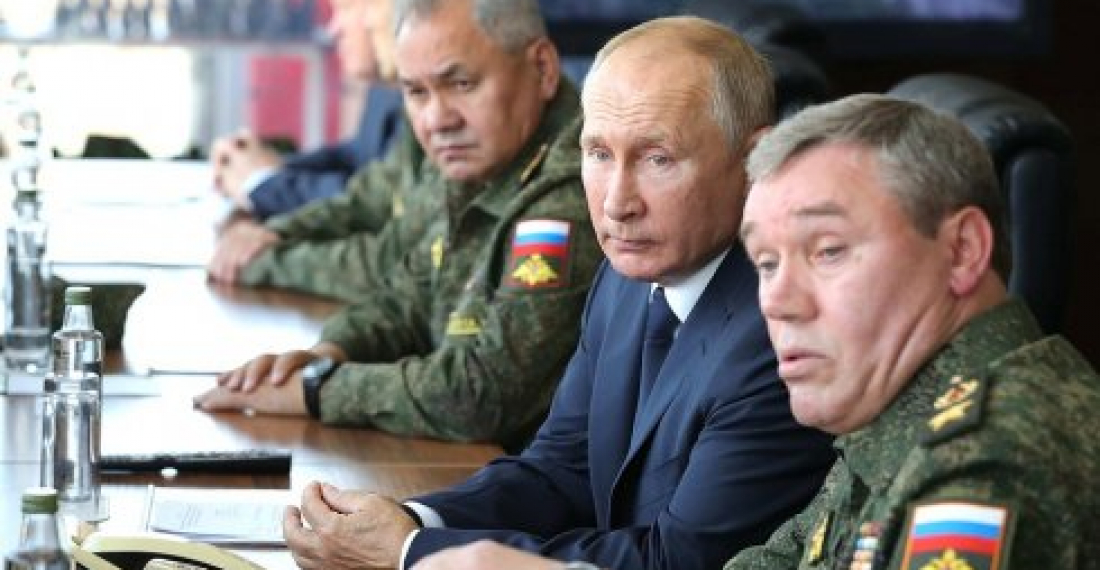Russian president Vladimir Putin on Friday (25 September) reviewed the last phase of the strategic exercise Kavkaz-2020 at the at the training ground Kapustin Yar in the Astrakhan Region of the Russian Federation and watched as 80,000 Russian troops defeated an imaginary enemy. Military units from China, Pakistan Myanmar, Armenia and Belarus also participated in the exercises. The exercises were also attended by military observers from Azerbaijan, Indonesia, Iran, Kazakhstan, Tajikistan and Sri Lanka according to the Russian Ministry of Defence.
The invoilvement of military units from Abkhazia and South Ossetia in the exercises has caused controversy. Some countries, for example India, were reported to have pulled out of the exercises citing possible diplomatic complications due to the Abkhaz and South Ossetian participation. On its part the Russian Defence Ministry did not mention Abkhazia and South Ossetia as participating in the exercises, although the flags of the two territories were flying at the training ground. 
Read related content: Are Abkhazia and South Ossetia in Kafkaz2020?
Furthermore, the exercises also took place on South Ossetian and Abkhaz territories which are internationally recognised as part of Georgia. A report on the website of the Russian Defence Ministry says that 1,500 military personnel were involved in the simulated combat tactical actions within the framework of the maneuvers "Kavkaz-2020" in South Ossetia.
250 tanks, up to 450 mechanized infantry fighting vehicles and APCs, as well as up to 200 artillery systems and multiple-launch rocket systems were set to be used in the exercise on firing grounds. The exercises also involved a number of air and naval units and stretched from the Black Sea to the Caspian Sea.

source: Commonspace.eu with agencies
photos:
Main photo: President Vladimir Putin reviewing the final phase of Kavkaz 2020 on 25 September 2020 (picture courtesy of the press service of the Russian presidential administration)
Photo 2: Soldiers participating in Kavkaz 2020 in South Ossetia (picture courtesy of the Ministry of Defence of the Russian Federation)
Photo 3: Helecopterts participating in Kavkaz 2020 (picture courtesy of the Ministry of Defence of the Russian Federation)






